第88章
[The period illustrated by the following letters includes the years between my father's return from the voyage of the "Beagle" and his settling at Down. It is marked by the gradual appearance of that weakness of health which ultimately forced him to leave London and take up his abode for the rest of his life in a quiet country house. In June, 1841, he writes to Lyell: "My father scarcely seems to expect that I shall become strong for some years; it has been a bitter mortification for me to digest the conclusion that the 'race is for the strong,' and that I shall probably do little more but be content to admire the strides others make in science."There is no evidence of any intention of entering a profession after his return from the voyage, and early in 1840 he wrote to Fitz-Roy: "I have nothing to wish for, excepting stronger health to go on with the subjects to which I have joyfully determined to devote my life."These two conditions--permanent ill-health and a passionate love of scientific work for its own sake--determined thus early in his career, the character of his whole future life. They impelled him to lead a retired life of constant labour, carried on to the utmost limits of his physical power, a life which signally falsified his melancholy prophecy.
The end of the last chapter saw my father safely arrived at Shrewsbury on October 4, 1836, "after an absence of five years and two days." He wrote to Fox: "You cannot imagine how gloriously delightful my first visit was at home; it was worth the banishment." But it was a pleasure that he could not long enjoy, for in the last days of October he was at Greenwich unpacking specimens from the "Beagle". As to the destination of the collections he writes, somewhat despondingly, to Henslow:--"I have not made much progress with the great men. I find, as you told me, that they are all overwhelmed with their own business. Mr. Lyell has entered, in the MOST good-natured manner, and almost without being asked, into all my plans. He tells me, however, the same story, that I must do all myself. Mr. Owen seems anxious to dissect some of the animals in spirits, and, besides these two, I have scarcely met any one who seems to wish to possess any of my specimens. I must except Dr. Grant, who is willing to examine some of the corallines. I see it is quite unreasonable to hope for a minute that any man will undertake the examination of a whole order. It is clear the collectors so much outnumber the real naturalists that the latter have no time to spare.
"I do not even find that the Collections care for receiving the unnamed specimens. The Zoological Museum (The Museum of the Zoological Society, then at 33 Bruton Street. The collection was some years later broken up and dispersed.) is nearly full, and upwards of a thousand specimens remain unmounted. I dare say the British Museum would receive them, but I cannot feel, from all I hear, any great respect even for the present state of that establishment. Your plan will be not only the best, but the only one, namely, to come down to Cambridge, arrange and group together the different families, and then wait till people, who are already working in different branches, may want specimens. But it appears to me [that] to do this it will be almost necessary to reside in London. As far as I can yet see my best plan will be to spend several months in Cambridge, and then when, by your assistance, I know on what ground I stand, to emigrate to London, where I can complete my Geology and try to push on the Zoology. I assure you I grieve to find how many things make me see the necessity of living for some time in this dirty, odious London. For even in Geology I suspect much assistance and communication will be necessary in this quarter, for instance, in fossil bones, of which none excepting the fragments of Megatherium have been looked at, and I clearly see that without my presence they never would be...